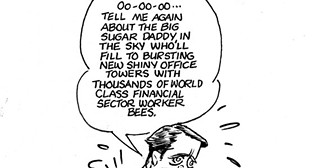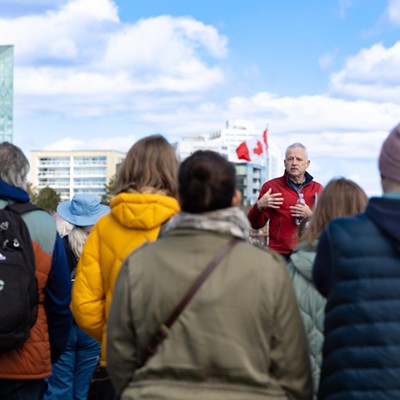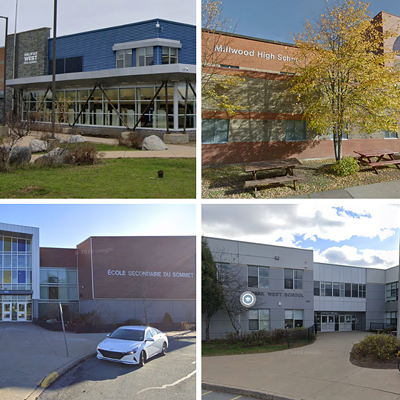Nova Scotia is poor. That's a reality that we don't seem to want to come to terms with. Were it not for transfer payments---$2.9 billion last year, more than a third of the provincial budget---we wouldn't have health care. Our very health is, quite literally, dependent on the good will of our richer, western compatriots.
So what's the problem? To start, we're cursed geographically, being a long way from anywhere, with mostly marginal land and a difficult climate.
Since the Brits kicked the French out, we've had an export-based economy, but such an economy brings great wealth to a few (John Risley is grateful) while most people struggle with piece-work or wage slavery (lobster fishers are pulling in just $3 a pound this year). Moreover, we've badly managed some resources---leading to a collapse of the cod fishery, for example.
Even when we're not mismanaging our resources, the export economy is dependent mainly on an American market that is now in perpetual free fall---Christmas tree sales plummeted 15 percent last year, for instance.
And then there's simply bad luck---as the Sable Island gas field peters out, offshore revenues will dry up completely in the next couple of years, just about cancelling out the recent sales tax increase.
Still, we keep our provincial attitudes ---Nova Scotia will only "make it," we think, if rich people and companies from somewhere else become our salvation, hiring us to service them. So each year we give millions of dollars in loans and tax breaks to companies to set up shop or expand operations; sometimes those companies pay off the loans, but often they're here just long enough to take advantage of our low labour rates, then they move onto the next sucker jurisdiction.
The provincial attitude leads to bizarre fantasies, like the idea that we could spend $2 billion to host the Commonwealth Games and there'd be no possible risk to the taxpayer. Or the notion circulating in 2008 that Halifax could replace Singapore as the outside-of-NY financial capital of the world. Or, that if we build a fancy convention centre, rich people from Houston and Vancouver will come here and buy our trinkets, and we'll be rolling in dough.
It also leads to the politics of blame. The local business elite is straight-jacketed by economic reality and their own shortcomings, but rather than admit as much, they lash out at those who would bring order and sense to the province. Completely contrary to the dictates of the market, speculation has led to the approval of over a million square feet of new office space development in downtown Halifax, none of it built. But, say the elite, the problem isn't that banks won't finance construction of a building that won't make money, but rather that the regulatory approval wasn't quick enough, despite the city bureaucracy exceeding the demands in approval time laid out by the Chamber of Commerce. Alternately, the lagging economy is the fault of unions, or preservationists or editorial writers who question turning the public treasury over to private interests.
So what should we do?
In his "Reflections of a Siamese Twin," John Ralston Saul lays out the case that the success of Canada comes precisely "from the needs of a northern society---a society living on the geographical and political margins." It was, says Saul, poverty of resources that led to a strategy for survival---social egalitarianism---and only from that egalitarianism did wealth come.
That's no less true now. For Nova Scotia to succeed, or at least survive, we must give up our provincialist fantasies of wealth from elsewhere trickling down upon us, and instead learn that wealth is created as we begin to take care of ourselves---all of ourselves, not just the connected elite.
In real terms that means building an economy that reduces reliance on imported goods. It means building support for local agriculture and fisheries managed sustainably, and addressing head-on the looming energy catastrophe: what little offshore revenues are left should be entirely dumped into an emergency retrofit program for housing, starting with housing for those who can least afford to pay for imported heating oil.
We must, first of all, care for each other.


















